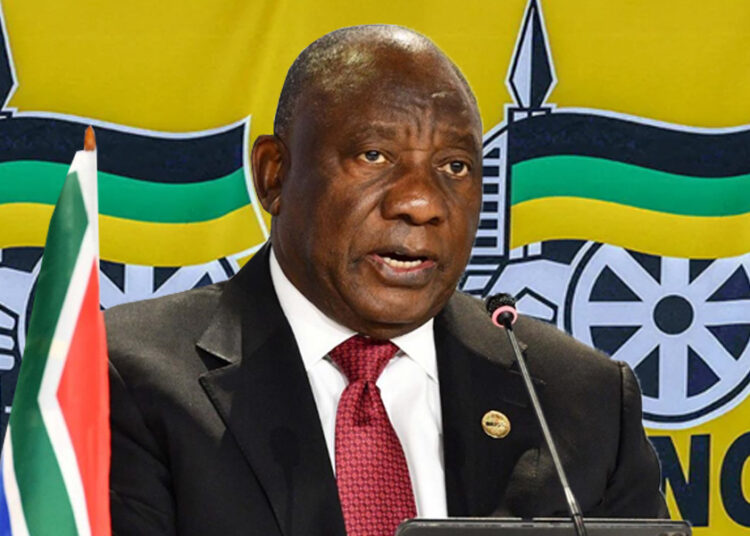South Africa’s African National Congress (ANC) will invite other political parties to form a government of national unity, its leader President Cyril Ramaphosa has said.
It came after last week’s election in which the ANC lost its majority for the first time since the end of the racist system of apartheid 30 years ago.
Mr Ramaphosa called for a national dialogue to help rebuild social cohesion after a “toxic and divisive” election campaign.
Political parties have just over a week to form a government before parliament convenes to elect the president.
Under South Africa’s proportional representation system, for a government to have a guaranteed majority it would need to be formed of parties which together got more than 50% of the vote.
The ANC took a 40% share, with the centre-right Democratic Alliance (DA) getting 22%, the MK party of former President Jacob Zuma won 15% and the radical Economic Freedom Fighters (EFF) 9%.
Mr Ramaphosa spoke late on Thursday after the ANC’s National Executive Committee (NEC) held a marathon meeting in Johannesburg, saying the party acknowledged people’s complaints.
“We agreed to invite political parties to form a government of national unity as the best option to move our country forward,” Mr Ramaphosa said.
His announcement came after days of speculation about the ANC’s options, such as pursuing a minority government or a coalition with one or two parties.
In the end the president invited all the ANC’s political opponents to engage in talks on co-governing the country.
This is a looser arrangement than a coalition, which is a formal agreement among participating parties to work together and usually involves trade-offs in policies and positions.
A national unity government, on the other hand, would include any party that agreed to a broad set of principles. The idea is that they would support the ANC on key votes such as the budget, but retain their own political and ideological agendas.
Analysts say taking this broad approach could allow the ANC to avoid choosing a coalition partner that may be unpopular with its base.
This is particularly true of the white-led DA. Its free-market agenda makes it the preferred option of the private sector and investors, and is seen as an important signal of stability to the markets.
But its policies are at odds with the ANC’s social welfare programmes and especially anathema to the party’s left-wing base.
“A government of national unity creates this impression that it is a collective working group coming together,” political analyst Sanusha Naidu told the BBC.











